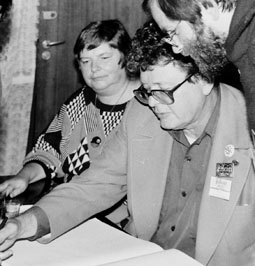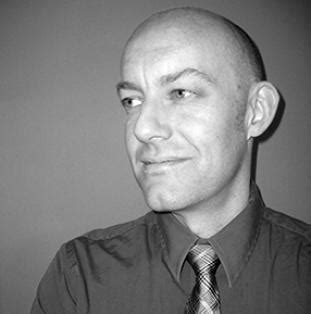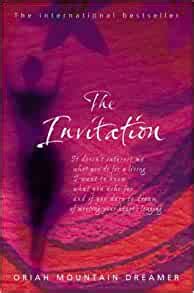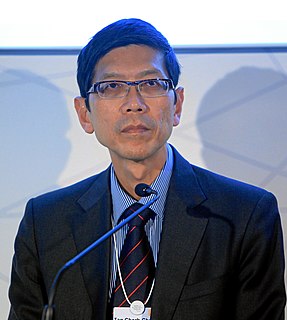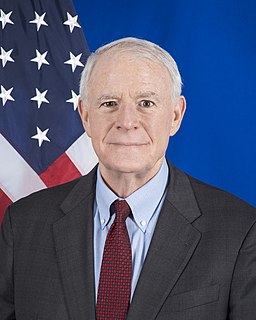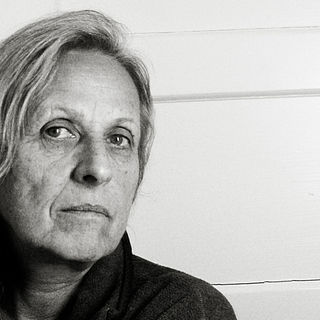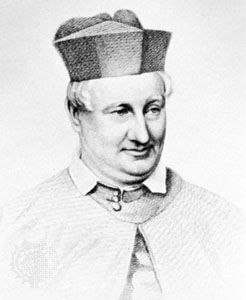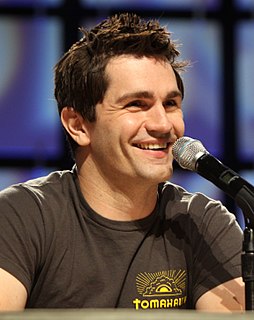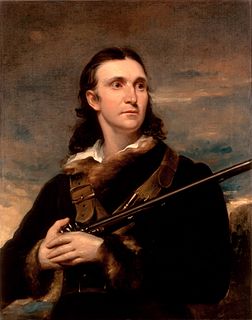Top 830 Draws Quotes & Sayings - Page 13
Explore popular Draws quotes.
Last updated on April 18, 2025.
The holiday season promotes a heightened sense of community. It draws our chins up and helps us look above and over the limiting fence of our own events, activities and preoccupations. The opportunity for a heroic gesture can tap you quietly on the shoulder in the midst of a holiday bustle. If you are attentive, you will notice the gentle touch and will be able to respond. Remember... There are no small acts of kindness. Every compassionate act makes large the world.
Man is more than his environment. It is from the innate quality of the Spirit in him, his inner storehouse, that he draws those ideas, his intuitions, which unify his perceptions of the external world instantaneously with a value which is qualitative and not quantitative, and which he embodies in the works of his culture - those achievements which belong not only to one particular time but to all times, and mark the path of his upward progress.
He brings to naught, destroys and rejects all that is not His own work; how He draws everything to Himself and absorbs it, that at last He may live and work in us and through us and reign alone as king. Happy the soul who refuses nothing to love, but places everything at His disposal, for only thus may all our works be done more and more in God.
As I see it, there are two great forces of human nature: self-interest, and caring for others. Capitalism harnesses self-interest in a helpful and sustainable way, but only on behalf of those who can pay. Government aid and philanthropy channel our caring for those who can't pay. But to provide rapid improvement for the poor we need a system that draws in innovators and businesses in a far better way than we do today.
If economic catastrophe does come, will it be a time that draws Christians together to share every resource we have, or will it drive us apart to hide in our own basements or mountain retreats, guarding at gunpoint our private stores from others? If we faithfully use our assets for his kingdom now, rather than hoarding them, can't we trust our faithful God to provide for us then?
We create our own reality because of our inner emotional - our subconscious - reality draws us into those situations from which we learn. We experience it as strange things happening to us (and) we meet the people in our lives that we need to learn from. And so we create these circumstances at a very deep metaphysical and subconscious level.
What is it that sometimes speaks in the soul so calmly, so clearly, that its earthly time is short? Is it the secret instinct of decaying nature, or the soul's impulsive throb, as immortality draws on? Be what it may, it rested in the heart of Eva, a calm, sweet, prophetic certainty that Heaven was near; calm as the light of sunset, sweet as the bright stillness of autumn, there her little heart reposed, only troubled by sorrow for those who loved her so dearly.
In life man commits himself and draws his own portrait, outside of which there is nothing. No doubt this thought may seem harsh to someone who has not made a success of his life. But on the other hand, it helps people to understand that reality alone counts, and that dreams, expectations and hopes only serve to define a man as a broken dream, aborted hopes, and futile expectations.
The strengths landscape architecture draws from its garden design heritage include: the Vitruvian design tradition of balancing utility, firmness and beauty; use of the word 'landscape' to mean 'a good place' - as the objective of the design process; a comprehensive approach to open space planning involving city parks, greenways and nature outside towns; a planning theory about the contextualisation of development projects; the principle that development plans should be adapted to their landscape context.
Man is not by any means of fixed and enduring form (this, in spite of suspicions to the contrary on the part of their wise men, was the ideal of the ancients). He is nothing else than the narrow and perilous bridge between nature and spirit. His innermost destiny drives him on to the spirit and to God. His innermost longing draws him back to nature, the mother. Between the two forces his life hangs tremulous and irresolute.
I guess I have some kind of a visceral connection with drums. I'm looking to create music that people can react to viscerally, and people will respond to viscerally. I think that you can listen to music, to a song you've never heard before and not really like it, but also feel like you're responding to it physically whether you like it or not. I think that's a powerful aspect about music, and I think that's something that draws me to drums.
At last, Lady Evenstar, fairest in this world, and most beloved, my world is fading. Lo! we have gathered, and we have spent, and now the time of payment draws near." 'Arwen knew well what he intended, and long had foreseen it; nonetheless she was overborne by her grief. "Would you then, lord, before your time leave your people that live by your word?" she said.
I will tell you why we have these extraordinary minds and souls, Miss Whittaker," he continued, as though he had not heard her. "We have them because there is a supreme intelligence in the universe, which wishes for communion with us. This supreme intelligence longs to be known. It calls out to us. It draws us close to its mystery, and grants us these remarkable minds, in order that we try to reach for it. It wants us to find it. It wants union with us, more than anything.
It makes it easier, if you can't do an American accent. I don't know. It's different. I played a character in Never Let Me Go where the script for my character was very sparse, and I enjoyed it. With Never Let Me Go, I had a whole book written from my character's point of view, so I always knew where I was. But, with Ryan [Gosling], it was just easy. He's such a brilliant actor and he is so prepared. He doesn't have to warm himself up to be in a scene. He's just in it. It draws you in, in a way.
What draws me to family... if I were a psychiatrist, I'd say an enormous amount of unresolved personal material. If I were an anthropologist, I'd say families are at the root of social structures - they shape our identity, our belief systems - and so I find them fascinating. Also, I love the idea that families have narratives that are essentially the family story that is passed along generation to generation - and the rifts start when people question the story.
When we want a book exactly like the one we just finished reading, what we really want is to recreate that pleasurable experience--the headlong rush to the last page, the falling into a character's life, the deeper understanding we've gotten of a place or a time, or the feeling of reading words that are put together in a way that causes us to look at the world differently. We need to start thinking about what it is about a book that draws us in, rather than what the book is about.
We tend to have mixed feelings about the holy. There is a sense in which we are at the same time attracted to it and repulsed by it. Something draws us toward it, while at the same time we want to run away from it. We can’t seem to decide which way we want it. Part of us yearns for the holy, while part of us despises it. We can’t live with it, and we can’t live without it.
But when a man draws a lifeless thing into his passionate longing for dialogue, lending it independence and as it were a soul, then there may dawn in him the presentiment of a world-wide dialogue with the world-happening that steps up to him even in his environment, which consists partially of things. Or do you seriously think that the giving and taking of signs halts on the threshold of that business where an honest and open spirit is found?
Born often under another sky, placed in the middle of an always moving scene, himself driven by the irresistible torrent which draws all about him, the American has no time to tie himself to anything, he grows accustomed only to change, and ends by regarding it as the natural state of man. He feels the need of it, more he loves it; for the instability; instead of meaning disaster to him, seems to give birth only to miracles all about him.
Young men, in the conduct and manage of actions, embrace more than they can hold; stir more than they can quiet; fly to the end, without consideration of the means and degrees; pursue some few principles, which they have chanced upon absurdly; care not to innovate, which draws unknown inconveniences; use extreme remedies at first; and, that which doubleth all errors, will not acknowledge or retract them; like an unready horse, that will neither stop nor turn.
When, in adoration, we look at the consecrated Host, the sign of creation speaks to us. And so, we encounter the greatness of his gift; but we also encounter the Passion, the Cross of Jesus and his Resurrection. Through this gaze of adoration, he draws us toward himself, within his mystery, through which he wants to transform us as he transformed the Host.
She reaches in, digs her hand deep into the ball, and pulls out a slip of paper. The crowd draws in a collective breath, and then you can hear a pin drop, and I'm feeling nauseous and so desperately hoping that it's not me, that it's not me, that it's not me. Effie Trinket crosses back to the podium, smoothes the slip of paper, and reads out the name in a clear voice. And it's not me. It's Primrose Everdeen.
Happier are all men than the dwellers in Faerie – or the gods, for that matter…Better a life like a falling star, bright across the dark, than a deathlessness that can see naught above or beyond itself…the day draws nigh when Faerie shall fade, the Erlking himself shrink to a woodland sprite and then to nothing, and the gods go under. And the worst of it is, I cannot believe it wrong that the immortals will not live forever.
If... we choose death rather than true life, God does not take away the power that He gave us. And not only does He not take it away, but He reminds us of it again and again. From the dawn till the dusk of life? For, indeed, no one can come to Christ, as He Himself said in the Gospels, unless the Father draws him (cf. Jn. 6:44).
The illness has only made certain ambivalences I'd always been conscious of that much more acute. Life versus Death, the absolute randomness of one's position, privilege, and place, the lot one draws, and so on. It has made previously suspicious-seeming clichés seem more tolerable. Love may not be all you need, but it is certainly a necessity. My desire to survive has been exponentially magnified by the fact that there is someone intimately tangled up in me who would be left alone with the world.
He smiles sadly. "Now I know my destiny." "What is it?" "This." He draws me in to him in a kiss. His lips are warm. He pulls me tighter in his embrace. The roots sigh and release their hold on my waist and the wound in my side is healed. "Kartik," I cry, kissing his cheeks. "It's let me go." "That's good," he says. He makes a small cry. His back arches, and every muscle in his body tightens.
Society ... is nothing more than the war of a thousand petty opposed interests, an eternal strife of all the vanities, which, turn in turn wounded and humiliated one by the other, intercross, come into collision, and on the morrow expiate the triumph of the eve in the bitterness of defeat. To live alone, to remain unjostled in this miserable struggle, where for a moment one draws the eyes of the spectators, to be crushed a moment later -- this is what is called being a nonentity, having no existence. Poor humanity!
Every successful man or great genius has three particular qualities in common. The most conspicuous of these is that they all produce a prodigious amount of work. The second is that they never know fatigue. And the third is that their minds grow more brilliant as they grow older, instead of less brilliant. Great men's lives begin at forty, where the mediocre man's life ends. The genius remains an ever-flowing fountain of creative achievement until the very last breath he draws.
I'm not the "not-working" type. I derive pleasure from my work. Work gives me relaxation too. Every moment I am thinking of something new: making a new plan, new ways to work. In the same way that a scientist draws pleasure from long hours in the laboratory, I draw pleasure in governance, in doing new things and bringing people together. That pleasure is sufficient for me.
Love has a particular trait: far from being indulgent or fickle, it has a task or purpose to fulfil: to abide. By its nature love is enduring. Again, dear friends, we catch a further glimpse of how much the Holy Spirit offers our world: love which dispels uncertainty; love which overcomes the fear of betrayal; love which carries eternity within; the true love which draws us into a unity that abides!
Tell me, can you see beauty? Can you let it renew your commitment to life, every day? I don't want to wait for death to be near to receive the beauty in my life. I want to be awed every day by the truth-pretty or painful-and let it open me to the beauty that surrounds me and draws me deeper and deeper into my own life.
Every one has experienced how learning an appropriate name for what was dim and vague cleared up and crystallized the whole matter. Some meaning seems distinct almost within reach, but is elusive; it refuses to condense into definite form; the attaching of a word somehow (just how, it is almost impossible to say) puts limits around the meaning, draws it out from the void, makes it stand out as an entity on its own account.
Gangsta rap often reaches higher than its ugliest, lowest common denominator, misogyny, violence, materialism and sexual transgression are not its exclusive domain. At its best, this music draws attention to complex dimensions of ghetto life ignored by most Americans. Indeed, gangsta rap's in-your-face style may do more to force America to confront crucial social problems than a million sermons or political speeches.
The environmental issues we face today are complex and span many knowledge domains. This undergraduate degree programme in Environmental Studies will nurture a pool of graduates who are able to think deeply and broadly about these issues, and help develop novel solutions for Singapore, Asia and beyond. I am delighted at this programme for another reason - it is the first undergraduate course that draws on expertise from eight Faculties in NUS, making full use of the comprehensive strengths of our University.
You compare the nation to a parched piece of land and the tax to a life-giving rain. So be it. But you should also ask yourself where this rain comes from, and whether it is not precisely the tax that draws the moisture from the soil and dries it up. You should also ask yourself further whether the soil receives more of this precious water from the rain than it loses by the evaporation?
The problem has to be answered by means of art, because you can't blast them with bliss. Tat freaks them out even more. So instead, you have to have an artful way of approaching them. You do a dance for them, you get them to imagine being interconnected, and to imagine being free of their suffering, and not so self involved, through art that draws them out. Then you, and they, are all established in what's called a Buddha-verse, or Buddha-land
It might be helping to explore a story visually by going to see a museum exhibit that's relevant to something that somebody's reading, or going to see a show or listening to a piece of music or cooking a meal that's in one of the stories, something practical, something kinesthetic that draws the reader in and helps them to experience the story for themselves. Those are all ways I think we can kind of come in the back door and help kids find the joy, as opposed to the chore or responsibility, of reading.
But I must go on," said the Lady Amalthea, "for it is never finished. Even when I wake, I cannot tell what is real, and what I am dreaming as I move and speak and eat my dinner. I remember what cannot have happened, and forget something that is happening to me know. People look at me as though I should know them, and I do know them in the dream, and always the fire draws me nearer, though I am awake—
Why do we focus so intensely on our problems? What draws us to them? Why are they so attractive? They have the magnet power of love: somehow we desire our problems; we are in love with them much as we want to get rid of them . . . Problems sustain us -- maybe that's why they don't go away. What would a life be without them? Completely tranquilized and loveless . . . There is a secret love hiding in each problem
[Michael] Chabon is arguing in favor of what is at the same time an old-fashioned and very forward-thinking opening up - of taking off the class associations with those labels, because we grew up, or I certainly grew up, feeling that, "Oh, there's literary fiction, and beneath that, there's these other things." He's actually saying that they're all of equal merit, and in many cases, that work in the genres, or work that draws from the genres is more entertaining for readers, since it is our job to entertain people.
As we live our human lives, let us be like the water. Let us be conscious of the flow. Let us not forget the great ground of being that draws us on through life. Let us live in a knowing hope, aware that all being is in transition, that all movement is back to the source. Let us treat those around us as reminders of our illusionary individuality. We know that they are us and we are them connected in ways we cannot fathom. Let us grow in compassion for all beings, for they share our journey.
You find photographs in so many different ways - from chance encounters, from looking at your negatives, from the way the light hits your pillow in your home, from a sound or a movement that makes you look... It’s whatever draws you or makes you feel something. Then, the picture is only good if it has a life of its own. Every photo is almost a fiction or a dream. If it’s really good, it’s another form of life.
He draws us to Himself by grace, by example, by power, by lovingness, by beauty, by pardon, and above all by the Blessed Sacrament. Every one who has had anything to do with ministering to souls has seen the power which Jesus has. Talent is not needed. Eloquence is comparatively unattractive. Learning is often beside the mark. Controversy simply repels... All the attraction of the Church is in Jesus, and His chief attraction is the Blessed Sacrament
I write my music with the idea that it will appeal to all of those people, and I want them to go in with all the history that's within all of us - all the things that they've listened to in the backs of their minds, whether it's country music or minimal techno, or classical music or whatever. I want them to bring that excitement, that love, or that hate, or whatever it might be, to my music. I feel that my music draws on so many different things.
We sit silently and watch the world around us. This has taken a lifetime to learn. It seems only the old are able to sit next to one another and not say anything and still feel content. The young, brash and impatient, must always break the silence. It is a waste, for silence is pure. Silence is holy. It draws people together because only those who are comfortable with each other can sit without speaking. This is the great paradox.
If you envy successful people, you create a negative force field of attraction that repels you from ever doing the things that you need to do to be successful. If you admire successful people, you create a positive force field of attraction that draws you toward becoming more and more like the kinds of people that you want to be like.
Dâna, charity. There is no higher virtue than charity. The lowest man is he whose hand draws in, in receiving; and he is the highest man whose hand goes out in giving. The hand was made to give always. Give the last bit of bread you have even if you are starving. You will be free in a moment if you starve yourself to death by giving to another. Immediately you will be perfect, you will become God.
RIHANNA IS TODAY'S MOST FASCINATING PERFORMER, A MYSTERIOUS AMALGAM OF AMIABLE WARMTH AND GLITTERING CHARISMA. WITH HER KEEN CREATIVE EYE FOR LINE AND COLOR, SHE HAS BECOME A FASHION ICON, LIKE AUDREY HEPBURN. YET SHE IS A TEMPESTUOUS WILD CHILD AND INTERNATIONAL ADVENTURESS, LIKE AVA GARDNER. MOST IMPORTANTLY, AS AN ARTIST IN THIS OVERMECHANIZED AGE, SHE BRAVELY DRAWS ON DEEP WELLS OF PURE EMOTION, ENDEARING HER TO MILLIONS OF FANS WORLDWIDE.
However, a Jedi who only fights in self defense and draws his lightsaber only to defend the innocent or to strike down his foe as quickly and painlessly as possible, that's what the lightsaber is for. That's what a Jedi is supposed to be. That's how it's supposed to go down. It's not supposed to be pretty or flashy. It's simply a necessary move. And that's it. Only the most necessary moves survive into the original Star Wars trilogy.
The charity that begins at home cannot rest there but draws one inexorably over the threshold and off the porch and down the street and so out and out and out and out into the world which becomes the home wherein charity begins until it becomes possible, in theory at least, to love the whole of creation with the same patience, affection, and amusement one first practiced, in between the pouts and tantrums, with parents, siblings, spouse, and children.
Grace in women has more effect than beauty. We sometimes see a certain fine self-possession, an habitual voluptuousness of character, which reposes on its own sensations and derives pleasure from all around it, that is more irresistible than any other attraction. There is an air of languid enjoyment in such persons, "in their eyes, in their arms, and their hands, and their face," which robs us of ourselves, and draws us by a secret sympathy towards them.
If a carpenter makes a chair that's comfortable for the person who's going to sit in it, he's done his job. If a train engineer gets a train in on time, he's going to make someone happy who's waiting at the station. And if an artist draws the kind of a picture that people are going to enjoy looking at, or he makes a visual story which people are going to enjoy reading, he's done his job.
Since holiness is the main thing that excites, draws, and governs all gracious affections, it is no wonder that all such affections tend to holiness. That which men love, they desire to have and to be united to, and possessed of. That beauty which men delight in, they desire to be adorned with. Those acts which men delight in, they necessarily incline to do.
The human understanding when it has once adopted an opinion (either as being the received opinion or as being agreeable to itself) draws all things else to support and agree with it. And though there be a greater number and weight of instances to be found on the other side, yet these it either neglects and despises, or else by some distinction sets aside and rejects, in order that by this great and pernicious predetermination the authority of its former conclusions may remain inviolate.
Amongst democratic nations men easily attain a certain equality of conditions: they can never attain the equality they desire. It perpetually retires from before them, yet without hiding itself from their sight, and in retiring draws them on. At every moment they think they are about to grasp it; it escapes at every moment from their hold. They are near enough to see its charms, but too far off to enjoy them; and before they have fully tasted its delights they die.
Look at that mallard as he floats on the lake; see his elevated head glittering with emerald green, his amber eyes glancing in the light! Even at this distance, he has marked you, and suspects that you bear no goodwill towards him, for he sees that you have a gun, and he has many a time been frightened by its report, or that of some other. The wary bird draws his feet under his body, springs upon then, opens his wings, and with loud quacks bids you farewell.
We have become so accustomed to the idea of divine love and of God's coming at Christmas that we no longer feel the shiver of fear that God's coming should arouse in us. We are indifferent to the message, taking only the pleasant and agreeable out of it and forgetting the serious aspect, that the God of the world draws near to the people of our little earth and lays claim to us. The coming of God is truly not only glad tidings, but first of all frightening news for everyone who has a conscience.
























